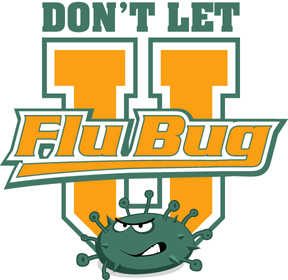A summary I wrote up for my class on emerging diseases:
The Pathogen
Mycobacterium bovis is the member of the Tuberculosis complex most removed, evolutionarily, from Mycobacterium tuberculosis, which is considered to be close to the ancestor organism1. It is a slow-growing bacteria that causes caseous abscesses, primarily in lungs and secondarily in lymph nodes, liver, spleen, and mammary glands2.
Transmission
M. bovis is primarily transmitted by aerosol droplets, but can also be present in milk, urine, feces, and, rarely, reproductive fluids3. Pasteurization is sufficient to kill the organism, as is prolonged exposure to the elements3. Human to human transmission is possible, but less efficient than animal to animal and animal to human transmission4. Risks for infection are family cattle ownership, work with animals, and consumption of raw milk and raw or poorly-cooked meat4.
Host Species
Unlike M. tuberculosis, M. bovis is a pathogen of a variety of species. Besides humans, it can be identified in cattle, badgers, bison, buffalo, and deer, among others3. The pathogen is endemic in a variety of areas, including the wild cervids of Minnesota5 and Michigan6, badgers in the UK7, and possums in New Zealand8.
Diagnosis
Primary diagnosis of TB in cattle and deer is through intradermal testing, which has the advantage of being cheap, easy, and laboratory-free9. This does not identify the strain of Mycobacterium involved and it is time-intensive. Other methods, including immunologic assays, are able to diagnose species, but they are more expensive and require laboratory capabilities beyond the ability of many developing countries. Because of these problems, the prevalence of M. bovis in most of the world is unknown.
Importance
In the developed world, human outbreaks of M. bovis occur primarily through raw-milk products such as soft cheeses10. At risk, however, are the immunosuppressed, especially from multi-drug resistant strains2. Epizootics have the potential to spread to humans, especially in animal keepers and meat industry workers2. In the developing world, especially Africa, food hygiene and close animal contact are the primary risk factors for infection4.
Problems
The main problem in the developed world is due to latency. TB can be overlooked early in infections, due to the slow growth of the organism, and can be reactivated years after apparent clearance11. In the developing world, the problems are legion: cultural attitudes and habits that maximize pathogen spread, immunosuppression from HIV infection, lack of diagnostic capabilities, and overall complacency towards what is considered a livestock disease12.
Reference List
1. Hewinson RG, Vordermeier HM, Smith NH, et al. Recent advances in our knowledge of Mycobacterium bovis: A feeling for the organism. Vet Microbiol 2006;112:127-139.
2. Thoen CO, LoBue P, de Kantor I. The importance of Mycobacterium bovis as a zoonosis. Vet Microbiol 2006;112:339-345.
3. Neill SD, Skuce RA, Pollock JM. Tuberculosis--new light from an old window. J Appl Microbiol 2005;98(6):1261-1269.
4. Ayele WY, Neill SD, Zinsstag J, et al. Bovine tuberculosis: an old disease but a new threat to Africa. Int J Tuberc Lung Dis 2004;8(8):924-937.
5. Bovine Tuberculosis Surveillance. Available at: http://www.bah.state.mn.us/diseases/tuberculosis/tuberculosis_program.htm.
6. About Bovine Tuberculosis. Available at: http://michigan.gov/emergingdiseases/0,1607,7-186-25804---,00.html.
7. Bovine TB-What is bovine tuberculosis? Available at: http://www.defra.gov.uk/animalh/tb/index.htm.
8. Lake R, Hudson A, Cressey P. Risk Profile: Mycobacterium bovis in milk. In: Anonymous. Christchurch, NZ: Institute of Environmental Science & Research Limited, Christchurch Science Centre, 2002;1-31.
9. Palmer MV, Waters WR. Advances in bovine tuberculosis diagnosis and pathogenesis: what policy makers need to know. Vet Microbiol 2006;112(2-4):181-190.
10. Anonymous. Epidemiologic Notes and Reports Disseminated Mycobacterium bovis Infection from BCG Vaccination of a Patient with Acquired Immunodeficiency Syndrome. 1985;34(16):227-228.
11. Hancox M. Latency and the control of bovine TB in man and other animals. Respir Med 2003;97(9):1075-1077.
12. Cosivi O, Grange JM, Daborn CJ, et al. Zoonotic Tuberculosis due to Mycobacterium bovis in Developing Countries. Emerg Infect Dis 1998;4(1):59-71.

